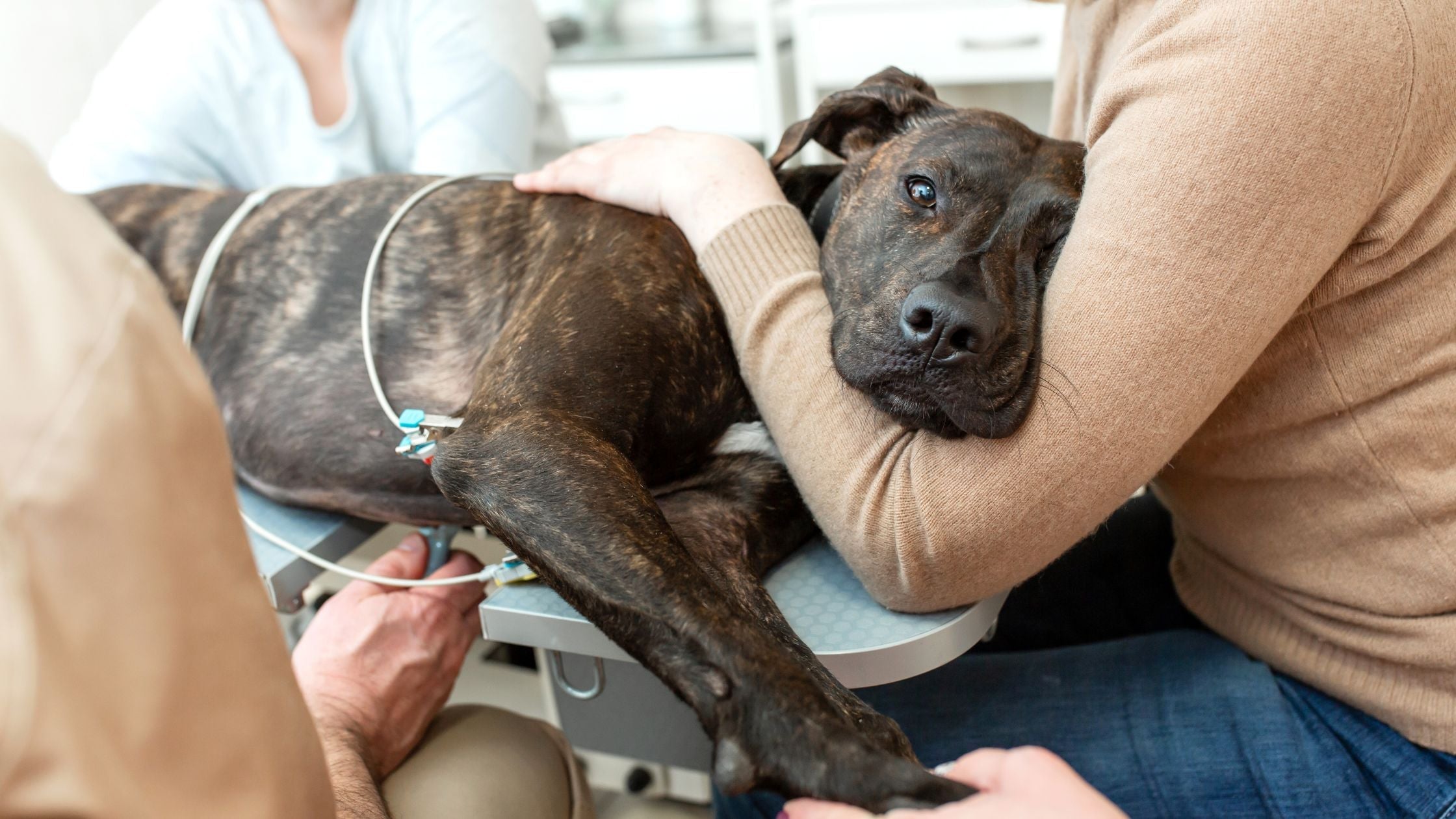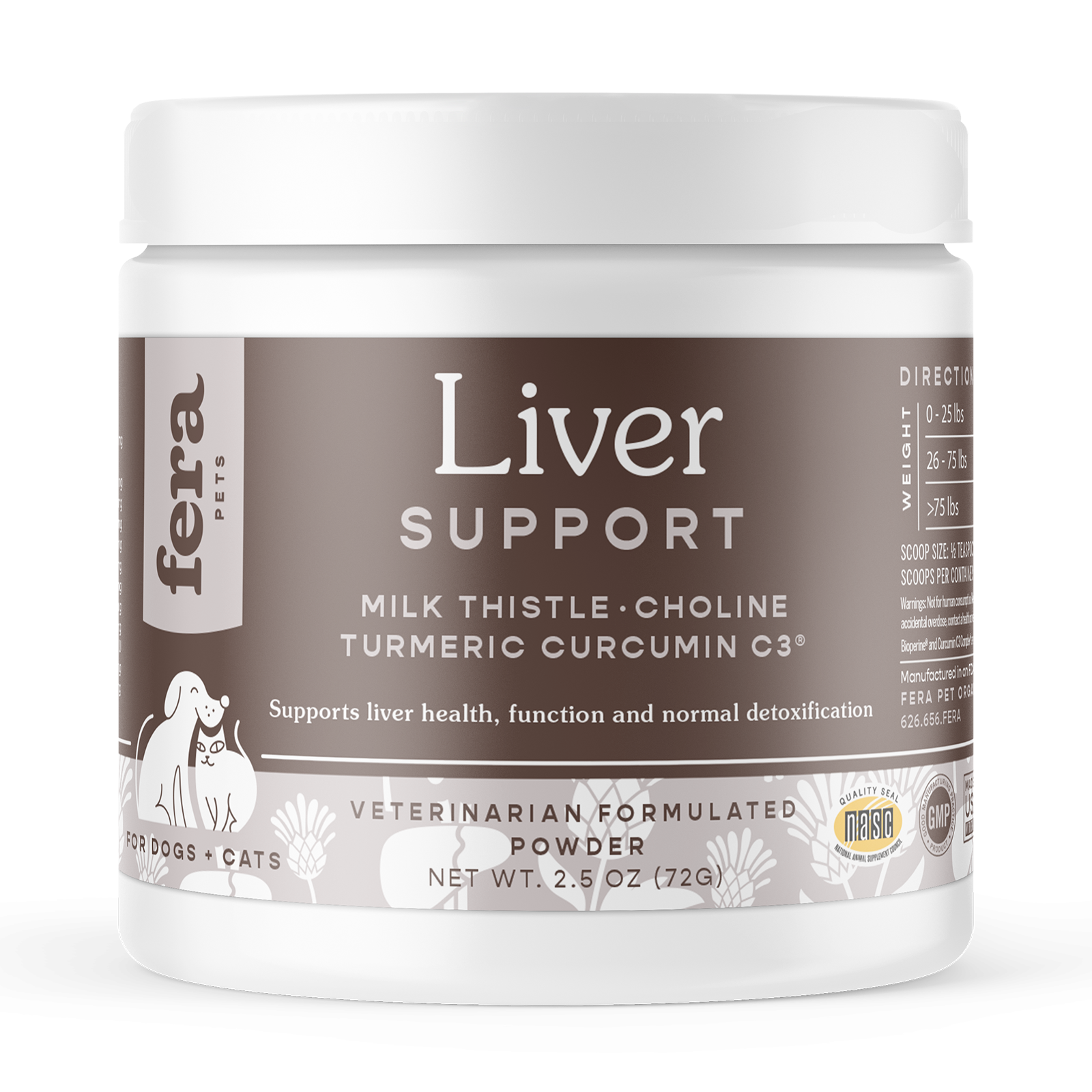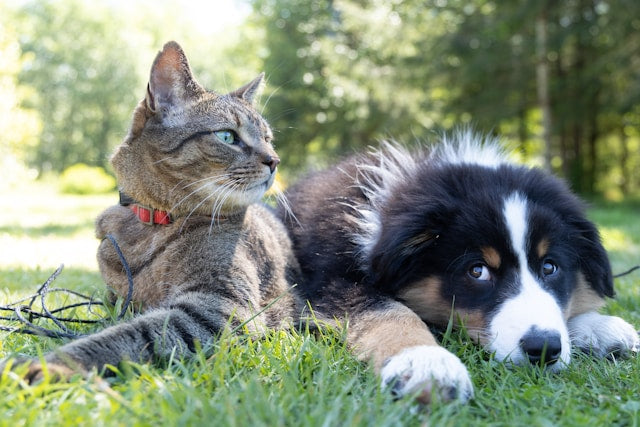6 Types of Liver Disease in Dogs and Cats and the Best Treatment Options
Discover the 6 most common liver diseases in dogs and cats that could be silently wreaking havoc on your pet's health. Learn the symptoms to look for and manage them effectively for a longer, happier life. Protect your pet's liver today with daily monitoring and supplements!
Animal livers, much like our own, are responsible for cleansing the blood of toxins, aiding in digestion, storing vitamins, and much more. That’s why liver diseases can cause an array of health problems throughout the entire body.
These are the most common types of liver disease in dogs and cats, symptoms to look out for, and how you can manage them to help your pet live a longer and happier life.
6 Types of Liver Disease
1. Portosystemic Shunt
Liver shunts occur when abnormal vessels bypass the liver, preventing the filtration of blood. This allows unwanted toxins to remain in the body and reduces the absorption of essential nutrients. The result is poor muscle development, stunted growth, and abnormal behaviors like walking in circles or random disorientation.
Since most pets with liver shunts are born with the condition, there’s not much that can be done to prevent or cure them. The best thing you can do in this situation is to upkeep your pet’s liver with consistent monitoring and medication. Even something as simple as a daily liver supplement can help!
2. Cholangitis
This bacterial infection spreads from the intestinal tract into the gallbladder and surrounding liver tissue, causing inflammation of the bile ducts. The resulting reduction of bile production can cause illnesses such as high fever, lethargy, weight loss, and vomiting.
In most cases, other health issues such as inflammatory bowel disease and pancreatitis are the catalysts for cholangitis.
3. Cholelithiasis
Better known as gallstones, cholelithiasis occurs when gallbladder failure interrupts bile flow or abnormal bile blocks movement into the intestines. The resulting cholesterol build-up will eventually form gallstones that are quite painful for your pet, especially after eating.
Most cases of cholelithiasis can be cured with medication that dissolves the stones, but in more serious cases, surgery may be required to remove them.
4. Hepatic Lipidosis
Also known as fatty liver syndrome, hepatic lipidosis is characterized by an excess of lipids in the liver. This inhibits proper liver function, resulting in jaundice, vomiting, reduced appetite, and in serious cases, liver failure.
Hepatic lipidosis is rare in dogs and cats, but it is much more prevalent in overweight cats and toy-sized dog breeds.
5. Pneumobilia
This condition is the result of an abnormal communication between the liver and the intestines, creating gas bubbles in the bile ducts. Although rare, it’s common in pets that have recently undergone biliary surgery or an endoscopic biliary procedure.
6. Hepatic Neoplasia
Hepatic neoplasia refers to live tumors in the liver. They can be cancerous or benign, but either way, they are dangerous for your pet’s long-term health and should be dealt with as soon as possible.
Several types of tumors can be found in the liver such as:
- Lymphomas
- Sarcomas
- Myeloipomas
- Leiomyosarcomas
- Carcinoids
Surgery and chemotherapy are the most effective ways to treat liver tumors. Your veterinarian will be able to determine which one is best based on the severity of the tumor.
Symptoms of Liver Disease in Dogs and Cats
Liver diseases are usually silent in the beginning and go unnoticed by pet parents until they escalate and cause more serious problems. That’s why it’s important to set up an appointment with your veterinarian as soon as you notice any signs of liver problems.
These are the most frequently seen symptoms of liver disease to be aware of.
Jaundice
This is the most telling sign of a liver problem in both animals and humans. The yellowish tinge to the skin is caused by a build-up of bilirubin, a product of red blood cell breakdown. You may also notice it in your pet’s eyes, gums, and ears.
Hepatic Encephalopathy
When toxins in the blood reach the brain and affect neurological function, it is called hepatic encephalopathy. Signs that your pet is struggling with this disorder include:
- Disorientation
- Depression
- Head pressing
- Whining
- Muscle tremors
- Blindness
- Personality changes
- Heavy drooling
- Seizures
Gastrointestinal Problems
Since your pet’s liver is a part of their gastrointestinal system, issues in the liver can directly affect other parts of the gastrointestinal tract. Some of the things you might notice are:
- Diarrhea
- Vomiting
- Increased drinking and urination
- Weight loss
- Ascites (fluid retention in the abdomen)
- Abnormal stool color
Treatment for Liver Disease in Pets
The proper treatment for your pet’s liver depends on the severity of the disease. The good news is that the liver is remarkably regenerative, meaning that mild cases can be easily treated and even eliminated.
However, more severe problems and cases of liver failure are much more difficult to treat. In these situations, all you can do is slow the progression of the disease and keep symptoms to a minimum.
Here are some treatment options to discuss with your veterinarian.
Liver Supplements
A good dietary supplement is an easy way to boost your pet’s liver performance. If you want an all-natural supplement made with ingredients you can trust, we recommend our organic Liver Support supplement for dogs and cats.
This tasteless powder can be sprinkled into your pet’s food and is specially curated with active ingredients known for supporting liver function including milk thistle, turmeric, organic artichoke, and dandelion root.
Our milk thistle extract is standardized to a minimum of 80% Silymarin which helps to support the health and function of the liver.
Diet Change
A switch in your pet’s food may be what they need to obtain the necessary nutrients and calories to help their liver. With your veterinarian's approval, look for foods specially formulated for liver support or include ingredients like blueberries, fatty fish, and leafy greens.
Antibiotics
Some antibiotics can be used to heal infections of the liver. If your pet is currently on medications, ask your veterinarian if the dosage should be reduced or if it’s a good idea to stop giving the medicine altogether.
Surgery
This is usually a last resort for severe cases of liver disease and is mainly used to remove tumors and cysts.
Fuel Your Pet’s Wildest Adventures With Healthy, Clean Supplements
At Fera Pet Organics, we use the purest active ingredients to address specific health conditions for dogs and cats. From liver support to healthier skin and coat, you’ll find just what your pet needs to power their inner “fera.”
Explore our collection of organic supplements for dogs and cats and be sure to subscribe to your pet’s favorites to save 10% on each order and enjoy subscriber-only promos.





